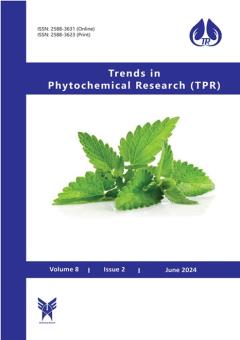-
-
-
Open Access Article
1 - In-vitro propagation of Pluchea lanceolata (DC) C.B.Clarke a potent antiarthritic medicinal herb through axillary bud
Satendra Singh Ritu Mishra Rajneesh Agnihotri -
Open Access Article
2 - Effects of season and spacing on growth pattern and seed yield of Muskdana genotypes (Abelmoschus moschatus L.) and radical scavenging activity of its seed oil
Ritu Mishra Ajay Kumar A.K. Gupta Dharmendra Saikia Raj K. Lal -
Open Access Article
3 - Genotype x environment interaction, stability analysis for yield and quality traits in turmeric (Curcuma longa L.)
Ritu Mishra Anil K. Gupta Raj Kishori Lal
List of Articles Ritu Mishra
-
The rights to this website are owned by the Raimag Press Management System.
Copyright © 2021-2024


